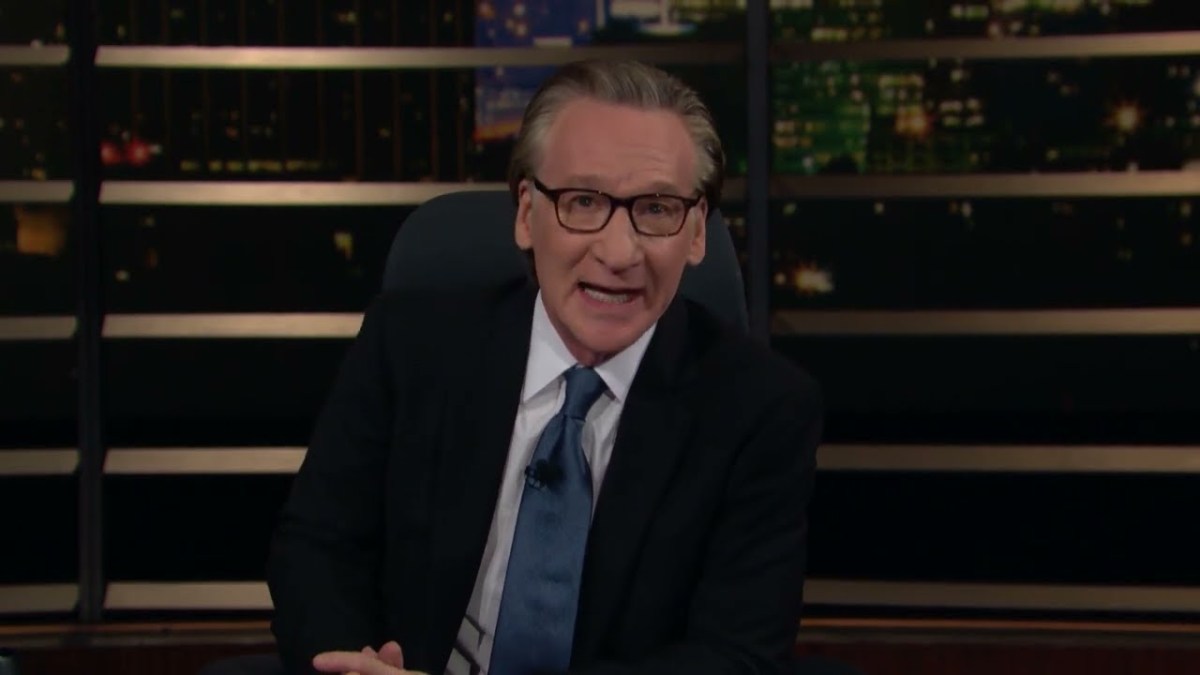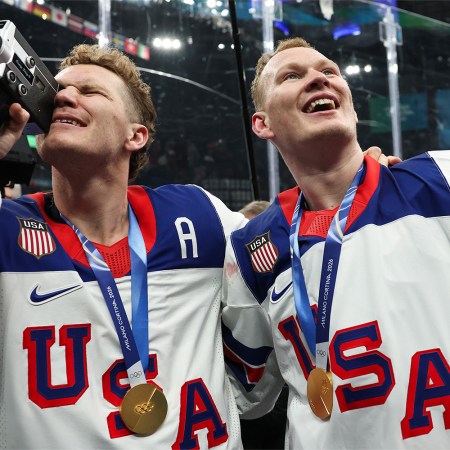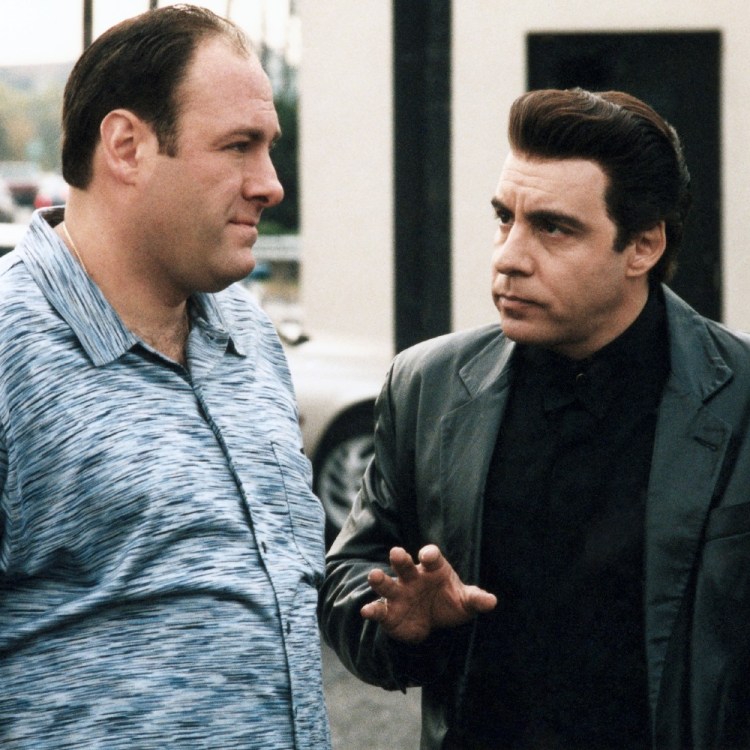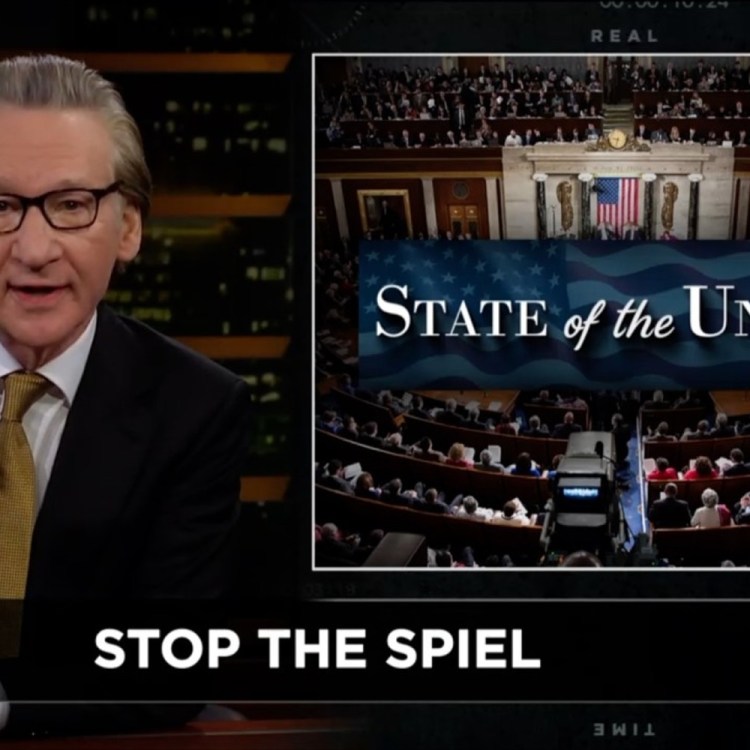It’s been over a month since the last episode of Real Time With Bill Maher. Earlier this year, Maher had one of the highest-profile breakthrough COVID-19 infections. Since Real Time’s summer break began, Los Angeles has been one of several locations to reinstate some pandemic-related restrictions — another subject that seemed ready for Maher’s commentary. And sure enough, Maher opened the show by alluding to the pandemic-sized elephant in the room, before segueing into a related matter: people who haven’t washed their masks in months.
“‘I don’t want to get the delta variant.’ Your mask grew the delta variant,” Maher said. From there, he made another announcement about headgear — namely, after three LASIK surgeries, he needed glasses, which he donned to applause. “These are progressive glasses,” he quipped. “All I see is white privilege.”
Maher also addressed this year’s Olympics, ending on a bemused note about the presence of the Russian Olympic Committee in this year’s Summer Games. “They don’t officially represent Russia, but they really-sorta do,” Maher said. “Just like Rudy Giuliani.”
In keeping with that theme, Maher’s first guest was the man likely to have Giuliani’s old job as Mayor of New York after this fall’s election, Eric Adams. Maher made no secret of his admiration of Adams, and opened the discussion with an open-ended invitation to Adams to explain his approach to politics. That he used the phrase “justice and safety” more than once seemed emblematic of the approach that got him the Democratic nomination. Adams also argued against the “demonization” of the wealthy and stressed, “This is not a socialist country.”
That Maher and Adams have simpatico politics — or, for that matter, strong opinions on the importance of healthy eating — was not exactly a surprise. But it also made for a relatively flat conversation, as both men seemed on the same page politically and expressed their happiness to be in conversation.
Maher and Adams spoke remotely, but the episode’s panel was located in the studio. Joining Maher were Rep. Stacey Plaskett of the US Virgin Islands and political reporter Joshua Green. The first topic Maher brought up for discussion was, not surprisingly, the endurance of the pandemic. Maher, Plaskett and Green discussed the different categories of people who hadn’t yet gotten vaccinated, with Plaskett raising a concern over disinformation targeting Black people online and Green arguing that there was a difference between the vaccine-hesitant and those people who wouldn’t get vaccinated under any circumstances.
Maher eventually turned discussion to the Olympics, and to various conservative figures’ rhetorical attacks on Simone Biles. Maher was, understandably, appalled by this — and called out Buck Sexton, who had previously been a guest on Real Time, for his comments on Biles. His contempt for this tendency was clear, but Plaskett seemed even more furious at them. “They can kiss my overworked Black woman ass,” Plaskett said of Biles’s critics.
“What they’ve done is politicize something that isn’t remotely political,” Green added. And Plaskett made a good point about right-wing personalities making a habit of criticizing prominent Black female athletes — including both Biles and Naomi Osaka.
Then, the panel took a fascinating turn as Plaskett discussed both the role of the US Virgin Islands within the nation as a whole and what it means to be a member of the House of Representatives from a territory that isn’t a state. She also provided a concise history of how the Virgin Islands came under control of the United States to begin with, and what that has to do with the overall level of happiness in contemporary Denmark. As a history and civics lesson, it was enlightening — and something of a call to action as well.
For New Rules, Maher began by covering a lot of ground — including the practice of storing a loved one’s ashes in a replica of their head and the notion of making up shows on streaming services to confuse people at parties. The bulk of the segment, though, focused on various Olympics-related firings and resignations over past behavior — and with Maher responding to an Associated Press article about surfing and cultural appropriation.
That argument, in turn, began to grow wider in its scope, eventually touching on the American Dirt controversy and Paul Simon’s Graceland. The Olympics references were new, but overall, it felt like the same argument Maher has made for most of the year to date. Whether or not it will convince anyone new this time around remains the question.
Thanks for reading InsideHook. Sign up for our daily newsletter and be in the know.

















